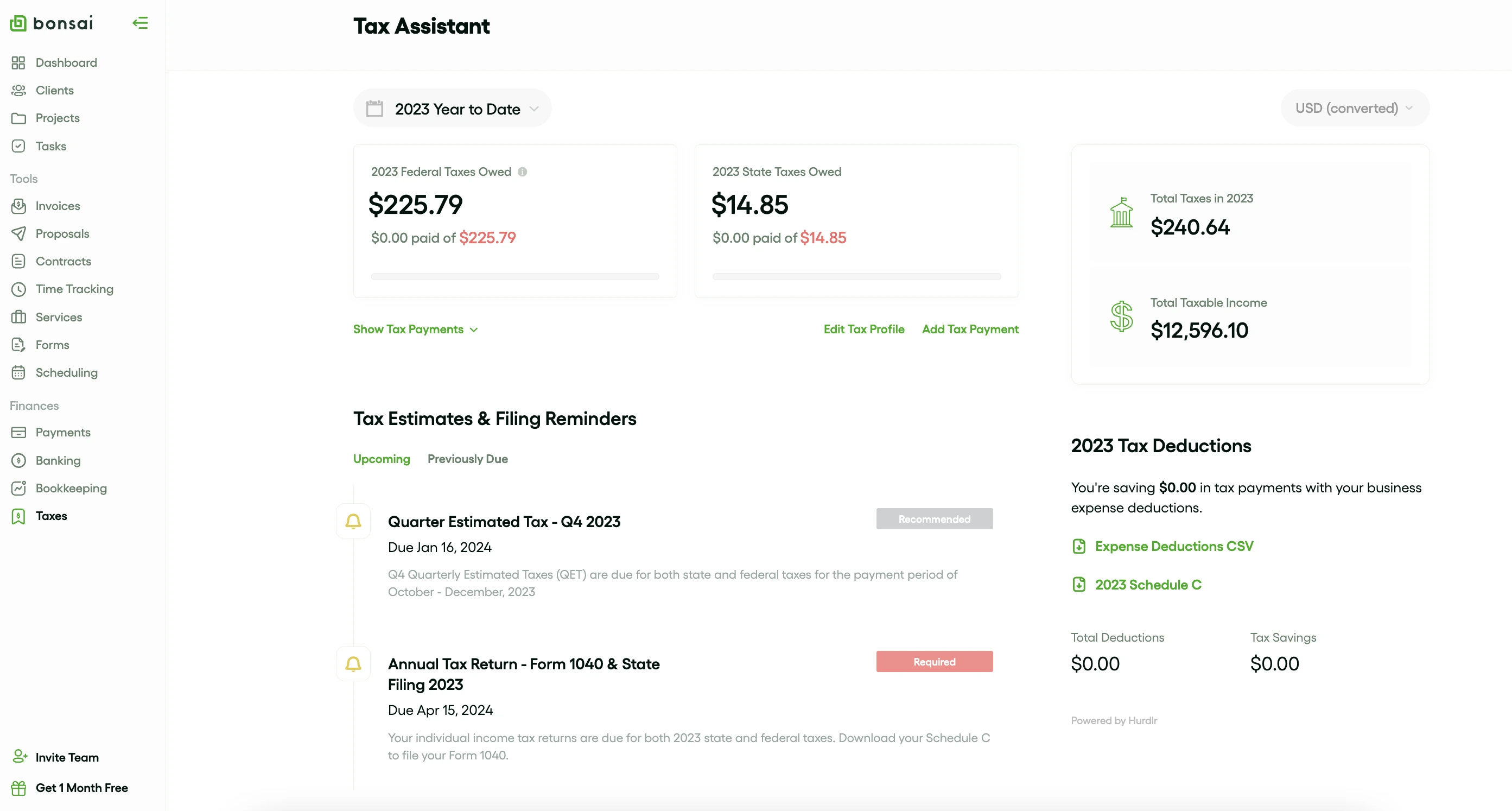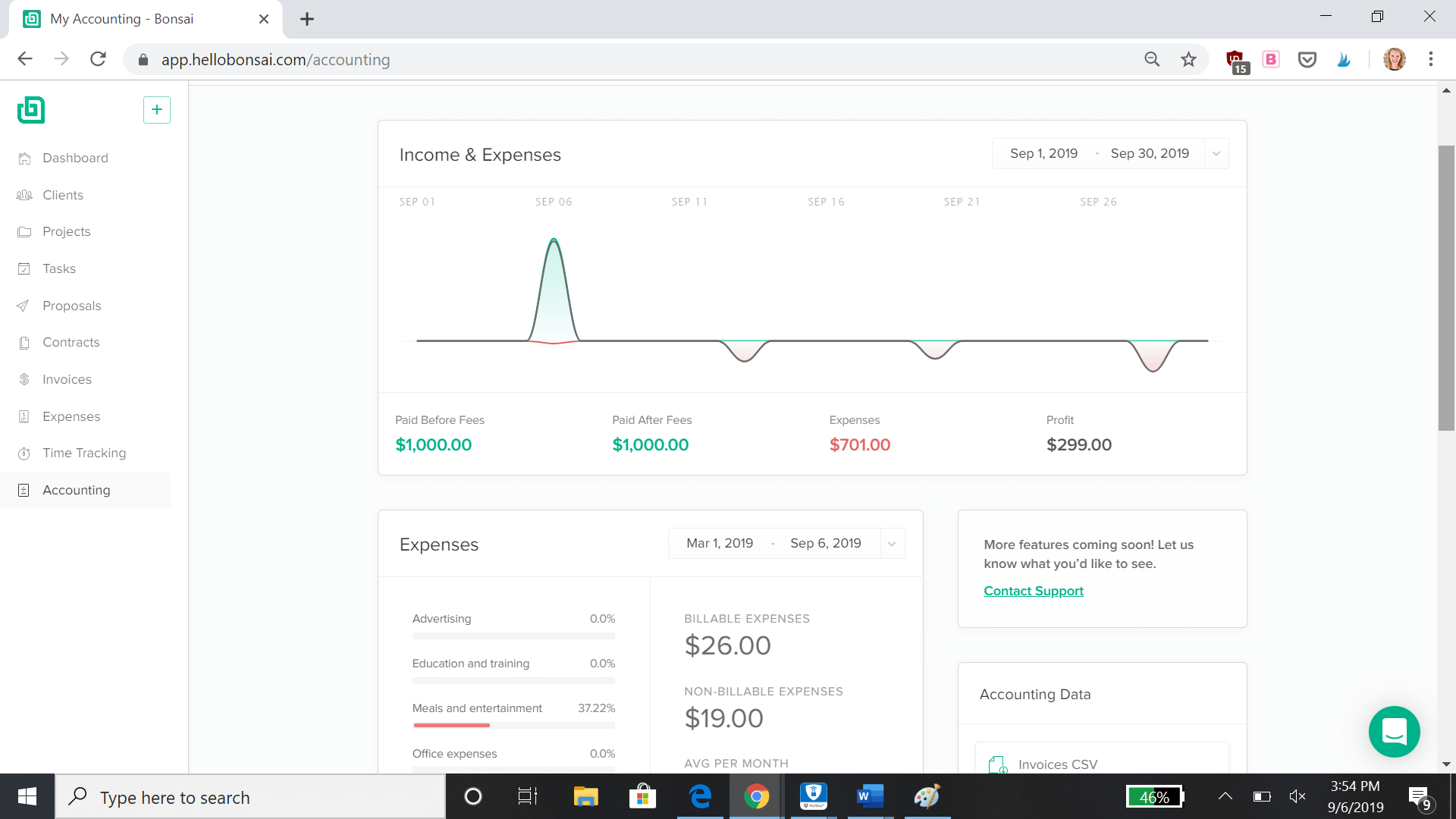What Is an Independent Consultant?
An independent consultant is someone who works on a freelance basis to provide advice or services in their area of expertise. Independent consultants are not tied to a specific organization and instead offer their services to clients who require them. They may sometimes work for a single client for a set period, or with multiple clients simultaneously.
When a consultant is self-employed, they become responsible for everything related to their own business operation, including paying taxes.
How Are Consultants Taxed?
Consultant taxes work the same way as any other self-employed person’s taxes. Because they are self-employed and not part of a larger organization, they are required to pay taxes on consulting income and lodge them as income tax.
They also need to pay self-employment tax to make contributions to Social Security and Medicare, as they have no employer to do this for them.
The specific consultant tax rate will depend on how much the consultant is earning and where the consultant is practicing.
How Taxes Work for Consultants
Consultant tax rates can be tricky to understand without a concrete example. Let’s have a look at how an independent consultant earning $100,000 a year would pay taxes:
Income Tax
A consultant earning $100,000 falls into the 24% tax bracket, but only income over $89,075 is taxed at this rate.
For the amount in this bracket:
- $100,000 – $89,075 = $10,925
- $10,925 x 24% = $2,622
For the income below the 24% bracket:
- 10% on the first $10,275 = $1,027.50
- 12% on the next $31,500 = $3,780
- 22% on the amount between $41,775 and $89,075 ($47,300) = $10,406
So, overall, your total income tax is as follows:
- $2,622 + $1,027.50 + $3,780 + $10,406 = $17,835.50
Self Employment Tax
Self-employment tax is calculated as being 15.3% of 92.35% of your net profits. To work this out:
- 92.35% of $100,000 = $92,350
- $92,350 x 15.3% = $14,139.55
Total Tax Owed
To figure out how much tax you owe overall, you need to add together your income tax and self-employment tax. In the case of this example:
$17,835.50 + $14,139.55 = $31,975.05
This equates to roughly 32% of your total income.
Estimated Quarterly Payments
The most common way for self-employed consultants to pay tax is through four quarterly tax payments. For this example, this would equate to $7,993.76 each quarter.
To help you make the calculations for your specific earnings, you can use the 1040-ES IRS form to estimate your taxes.
When to Pay Independent Consultant Taxes
We’ve had a look at how much tax you’ll likely have to pay as an independent consultant, but when should you pay, and what else do you need to bear in mind? Let’s take a closer look at some other considerations:
1. File Your Tax Return No Matter How Much (or Little) You Earn
Even if you’ve just started your independent consulting business and have barely earned anything, file your taxes! Filing establishes a clear record with tax authorities, and even if you’re below the folding threshold you may be eligible for credits or refunds.
2. Understand What Self-Employment Tax Covers
Self-employment tax covers Social Security and Medicare taxes. This is essential for an independent consultant — because they have no employer, they need to contribute the full amount, not half.
However, self-employed individuals can deduct the employer-equivalent half of their self-employment tax when calculating their full income.
3. Get Smart About How You Record All Your Self-Employed Business Income
Record keeping is crucial for all self-employed people! Every source of income needs to be scrupulously recorded, to ensure you’re paying the correct amount of tax and that your finances can stand up to an audit.
Hiring an accountant or using business management software like Bonsai is a good way to ensure your records are in order.
4. Know Which Expenses Are Tax Deductions
When you’re self-employed, business-related expenses can be deducted from your taxable income, so it’s essential to understand which expenses you can deduct.
Common deductions are home office expenses (such as internet connection fees and office equipment), business-related travel, and professional development. Records and receipts need to be kept so you can easily keep track of what you can deduct.
5. Separate Your Business Activities from Hobbies
It’s important to delineate between your business activities and your hobbies. If your consulting business started as an extension of something you once did as a hobby, you need to ensure you differentiate your new business from your other activities.
Use a separate bank account, have a clear business plan, and show how you’re working to make your business profitable.
6. Be Aware of Travel
Travel is common for many consultants, so it’s essential to know the rules for how to deduct your travel expenses.
If you’re travelling for business, costs like airfares and accommodation can be deductible, but things can become tricky if you’re mixing business with pleasure.
Make sure you only claim for business-related expenses and keep clear and accurate records of your spending.
Tax Deductions for Consultants
Making the most of the deductions available to you as a consultant can help you reduce your taxable income significantly, lowering the amount of tax you have to pay. This includes:
- Travel: Most aspects of business travel can be deducted, including flights, gas costs, accommodation, and meals.
- Home Office: If you use part of your home for your consulting work you can deduct a portion of your rent or mortgage and utility bills.
- Tools: Any tools you use for your business may be deducted — this includes software, computers, or phones.
- Professional Development: If you need to take a course or attend a seminar to grow your consulting skills, these may be deductible.
- Advertising: Costs associated with promoting your business, including ads, website fees, and business cards can be deducted.
- Professional Services: If you use professional services to help with the running of your business, such as lawyers or accountants, their fees may be deductible expenses.
- Health Insurance: Self-employed people can typically deduct their health insurance premiums from their total taxable income.
Taxes on Consulting Fees Don’t Have to Be Hard
If all of the tax considerations sound overwhelming, Bonsai might be a good tool for you! It comes with features that automate your tax calculations and ensure everything is accurate.
Bonsai helps you manage your business expenses and simplify the entire process. There are plenty of simple, easy-to-use invoice templates from Bonsai that make billing your clients a breeze!
Did you know that you can use Bonsai for accounting?
Or that Bonsai can help you calculate your 1099 taxes, help you manage them by providing tax estimates, filling date reminders, and identifying your consulting tax write-offs?
Let's see how that works. First, head to your main Bonsai dashboard and have a close look on the left side - we'll be working with the bookkeeping and taxes sections. First click on "Bookkeeping".

Inside the bookkeeping section, you'll see a breakdown of your income and expenses. Both can either be automatically imported from your bank account, or manually added. Work you got paid for via Bonsai will also be registered here.
Make sure this section is properly filled in and click on "Taxes" next.

This is where the magic happens: Bonsai will do all the calculations for you, and we'll provide you with an overview of your tax estimates, a list of tax deductions you can use for the upcoming tax season, and reminders for all the upcoming filling dates.

Simple, right? If you're ready to check out Bonsai and explore all the features, go ahead and sign up for the free trial!
Frequently Asked Questions (FAQ)
How is consulting income taxed?
Consulting income is taxed as self-employment income, so independent consultants have to pay both income tax and self-employment tax.
What consulting fees are tax deductible?
Costs that are related to the consulting business are tax deductible — this can include travel, tools, home office costs, advertising, and professional development.
Which employer taxes will I pay as a consultant?
As a self-employed consultant, you’ll be responsible for paying the employer portions of Social Security and Medicare.
Sources
https://www.irs.gov/pub/irs-pdf/f1040es.pdf
https://www.forbes.com/advisor/taxes/15-deductions-to-reduce-your-taxes-if-you-are-self-employed/
https://www.irs.gov/newsroom/hobby-or-business-heres-what-to-know-about-that-side-hustle







